Underground
A film wot is bleedin’ London,
Chaplin was a bleedin’ Londoner, it shows. Des Esseintes can just stay home
in Paree and watch this on the Champs-Élysées,
that’s all. A late start at the peak of the
silents, as far ahead in the cinema as it is possible to imagine nonetheless. In that regard, much like Sternberg’s The Salvation Hunters.
The wrong speed is like the wrong aspect ratio, a funhouse mirror.
The same romantic
situation as in French without Tears
(Kate loves Bert loves Nell loves Bill). Cute kid,
Nell, recites the day’s events in pantomime to her mother, the
film’s first two reels in half a minute. Sublime
girl, parrying Bert in Thistle Grove, riding atop a charabanc
with Bill, whence Minnelli has the lovers in The Clock. A day in the country as placid
as Antonioni’s Blowup. The cinema has to be invented, as for Sternberg. In this lies all the pleasure and joy of the thing. An Englishman in a canoe (French without Tears) is an ancient Briton, an urchin from town
playing his harmonica amongst the trees and fields is a rustic swain piping, the camera simply records this.
The “ruddy
melodrama” Mordaunt Hall (New York
Times) complains of is, of course, just what interests Asquith. The beauty of the construction is to complete the Lubitsch
circle by having Bill attack Kate in a factitious attempted rape set up by Bert
to disgust Nell, it happens just apart from the river of life in an Underground
station. So Bert of the Power House scuppers Bill the
Underground porter for Nell the shopgirl with a tale
of unwanted love foisted on Kate the dressmaker. A pennywhistler bemuses tykes on a London street. Hall evidently saw Bruckman’s
The Battle of the Century “on
the same program,” all he said was “more pies are thrown than in
any ten Mack Sennett productions,” Laurel and Hardy are not mentioned,
“another nice mess”. Nell
gets the drappie on the little bint, a cute kid herself who wants marriage with
Bert something awful. And there is murder in it and a
rooftop fight and finally that crane as if from Sternberg.
The function is to show the genius of the place,
attended by Fortune who is blind On
Approval, according to the well-apportioned gag, The Vagabond King.
According to Juliet Jacques of New Statesman (“a freelance journalist and writer who covers
gender, sexuality, literature, film, art and football,” and who
chronicled her sex change operation in the Guardian),
“a sincere, touching document of its time” (but this is described
as “exploring counter-culture in the arts,” etc.).
A Cottage on Dartmoor
The title
humorously gives a pithy description of a passionate love. Asquith
is of the opinion that the cinema ought to be able to express such things or
why bother?
Emotional states,
psychological states, a Mannerist heroine, the great study of a motion picture
audience (Hitchcock takes notice of one not watching the show), Dearden
capitalizes on this in The Smallest Show
on Earth, the Powell & Pressburger weather eye is there from the very
start.
“Crude...
immature” (Halliwell’s Film
Guide), from which total misapprehension other critics have refrained.
Moscow Nights
Known in America
as I Stand Condemned. History is made...
An uncommonly
influential or prescient film, with consequences far and wide.
Doctor Zhivago, Alexander Nevsky, The Queen Of Spades,
Great Catherine, Fahrenheit 451, Mr. Smith Goes To Washington
and The Bounty all owe something or other to it (it owes a little to A
Farewell to Arms and King Vidor and Les Misérables).
What Asquith
brought back from Hollywood was such a vision of Hollywood lighting as
Hollywood hardly understood. He uses it for sculpture
in relief and in the round, and if he reaches Vermeer at one point, it’s
by an understanding of light and space. Within this
overall framework and with these objects, his camera moves in constant
composition.
French without Tears
The girl is
American-bred, and so the mystery deepens, how this became Losey’s Accident by pure analysis. “Hitlaire!”, eyes to
heaven, Prof. Maingot. Months
before the invasion. Love’s Labour’s Lost upon the English gentleman (cf. Cukor’s Sylvia Scarlett, for that matter Lang’s Man Hunt), he gets the nudge, in a manner of speaking. Asquith has the joke,
“aspects” of French, Tati’s facteur finds rondeur to slap and tickle.
After Pygmalion, and Channel Incident. Quite like Sylvia Miles
in this part, Ellen Drew. Bernard Knowles director of
photography, Jack Hildyard cameraman, David Lean editor, De Grunwald and
Dalrymple screenplay, Mario Zampi producer.
Graham Greene at
this time was given to making outlandish statements on the cinema, Halliwell’s Film Guide cites him
in cold blood while itself commenting merely, “pleasant”.
Let another
English gentleman test the waters, “all right, Diana, I’d do
anything for you, even act as a sort of thermometer.” One
stands corrected, “we call her a ship in the Navy,” one’s
boat.
B.R. Crisler of the New
York Times, “may be set down as easily the most lachrymose comedy of
the season,” in which access of wit he went on to pan Laurel and Hardy in
Saps at Sea (“lacks comic
invention”) and Boris Karloff in The
Man with Nine Lives (“movie medicos are at best a strange
breed”). Time
Out, “simply a historical curiosity.”
As they say,
“nothing like discipline,” to which the reply is, “nothing.” The charming title song is not given a credit. The girl has ideas above her gare. The
height of elegance is a legible signature (Cocteau). The
human voice on a telephone in French, as natural as you please. Infinitely witty, which is why you have Ray Milland, Guy
Middleton and Roland Culver dispensing it. “If
he tries to give you the impression that I’m a scheming wrecker of
men’s lives, you needn’t necessarily believe him.”
The memorable
fracas over an India rubber concludes with a hand and arm reaching between two
hands and arms to seize it (David Tree). It never
fails, the more brilliant the film, the duller the critics. Give
them a crock and they expound like Diogenes, Archimedes even.
And it is a literary theme, question of a rejected novel (cf. Lang’s House by the River). The Foreign Office
and the Admiralty are not un œuf-f-f. John Simon
famously thought Losey’s film not all it was cracked up to be.
The one about the
two conchies in Central Africa. The play is good, the
play is great, the film is something else again. When
they make a better film, you may be sure the British Film Institute will do its
level best to inform the public. A film to put
Lubitsch on the floor in stitches. “Don’t
tread on any escargots.”
“I loved
her for her character! Did you?”
“Certainly not.”
“En français,
in French, gentlemen, toujours en
français. Vive la France! Vive la
France!”
“Officers
in the Royal Navy never pass out.”
“I suppose
they just fall on the floor in an alcoholic stupor.”
“Exactly.”
“Tell us why
we disliked you so much?”
“All right. Because, you all
made up your minds to dislike me, before I ever came into the house. All except Diana, that is to say.”
Freedom Radio
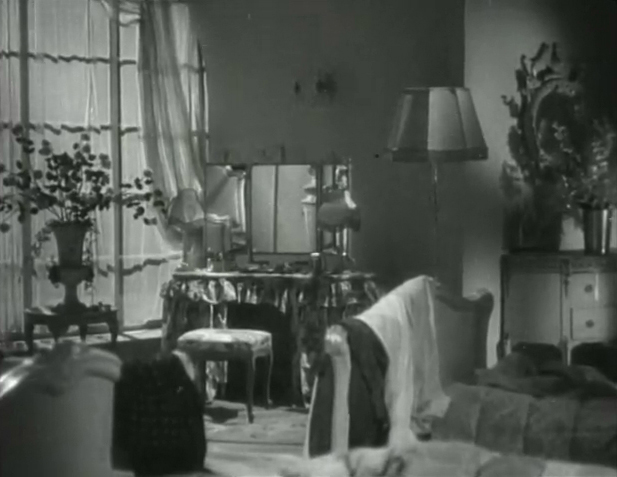
It all happening
there, where one is a leading specialist treating Hitler’s flaming
throat, and the wife is a leading stage actress (Iphigenia, no less) named to a
high government post amidst the tightening noose. “Now
I’m married to the Reichsdirector of Popular
Pageantry, I’m going to charge double fees.” The
very fine comedy of the opening stretches is a factor in Wyler’s Mrs. Miniver, the structure also may be
said to bear upon such a thing as John Osborne’s The Right Prospectus (dir. Alan Cooke) or Tom Stoppard’s The Romantic Englishwoman from the novel
(dir. Joseph Losey), but then it all really happened to Fritz Lang, after a
fashion.
The German
Resistance, a thing of old Heidelbergians to begin
with, whose annual New Year’s Eve reunion is closed down and one of their
number killed by the Gestapo. As in the days of the
witch trials, denunciations are a matter of jealousy and greed and blind
superstition. “I was there, I saw the look on
his face, he was enjoying himself!” The charm of the New Order lies in its lying,
Nietzsche’s “homage Vice pays to Virtue.”
Merely a question
of politics at first to which one laughing pays no heed, then of goosestepping SS men in one’s street (“probably
make you very fit”), then a “very becoming” new black uniform
on the young brother-in-law, formerly a painter, and then the murder of a
priest in his subsequently smashed-up church, only the beginning of a
thousand-year Reich.
“That’s
sheer treason,” says the wife, “I won’t listen to it.” Simon Gray in Butley
(dir. Harold Pinter) remembers the doctor switching his work lamp off and on
after she leaves for Stuttgart and her official duties. “The
intellectual blackout is complete,” says the good doctor in his first
broadcast to the nation. A fireside chat from a different
locale each night at 10:30 with the Gestapo hot on the beam. “If
we follow a madman, we are madmen ourselves, and we are doomed.” Popular pageantry means stadium rallies and
forty-foot banners in wind supplied by “our good doctor” Goebbels. In Berlin on a narrow sidewalk with a wide policeman, one
steps into the gutter and goes around him.
The astounding
construction pivots on a woman’s vanity table and an actor’s
dressing room, and then Chaplin’s The
Great Dictator (cf. Capra’s
Meet John Doe, whence perhaps the
entire misprision of Andrew Sarris in The
American Cinema). It comes down to three days
before Poland is invaded in back of a lie, that and the vision of one returning
from the concentration camps. “Karl, what have
they done to us?”
“Not us,
everyone.” Homage to Foreign Correspondent (dir. Alfred Hitchcock). “You
cannot escape responsibility by blaming it on your leaders, if you allow this
thing to happen the blame is yours and you will earn the loathing of posterity!” Wyler remembers the bullet holes (Penn too in Bonnie and Clyde), Cartier the deceptive
homeliness (also from Hitchcock) in 1984,
Pollack the essential structure down to the bullet holes in Three Days of the Condor, the grandeur
and precision of feeling expressed with quintessential reserve are certainly
English, even American according to Ford Madox Brown,
“both of us true inheritors from the Norsemen of Iceland, whose ladies
would take horse and ride for three months about the island, without so much as
a presumptuous question on their return from the much tolerating husbands of
the period.”
T.M.P. of the New York Times, “although there is an
undeniable amount of truth in what the film has to say, it is blunted and made
implausible by the lurid accumulation of atrocities on the heads of the Gestapo” (as A
Voice in the Night “at the Globe” in May of 1941). Daniel Etherington (Film4), “Second World War era
propaganda”. Radio Times, “wartime propaganda
drama.” TV
Guide, “typical wartime propaganda”. Sandra
Brennan (All Movie Guide), “WW
II propaganda film.” Halliwell’s Film Guide, “flagwaver.”
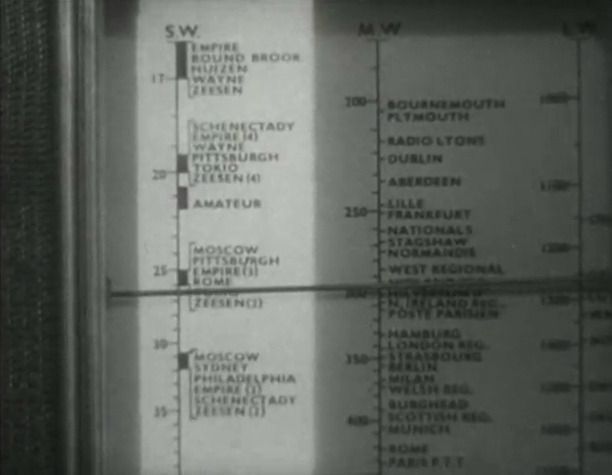
Quiet Wedding
In the village of
Throppleton, among the smart set of businessmen with country houses.
Minnelli later on
takes a pointed view in Father of the Bride, Asquith is an all-rounder
who follows the course of events somewhat more dispassionately, a central organized plan reveals itself as the wedding
materializes from a cricketer’s halting proposal to a general
mobilization of womenfolk abetted by the men.
The jokes are
very swift and keen, at last by the grace of God the
couple are hitched.
The reason for it
all is in three parts, on good feminine advice the polite groom abducts the
nervous bride in her father’s motorcar, passing the groom’s father
on the road at a good clip the latter is all but sideswiped, he shouts after
them, “lunatic!” The son, not recognizing
him, of course, shouts back, “idiot!” This
Œdipal gag is followed by a chaste night in the new flat (power not on), a
road accident and a session with the magistrates, “old baskets” as
they are.
Even this only
adds to the swelling hilarity resolved at the altar.
Five times
production was halted by the Blitz, says T.M.P. of the New York Times in
a rather glowing review.
Cottage to Let
A brilliant
screwball comedy laid on in Scotland at an inventor’s digs. A Spitfire pilot drops in by parachute, he’s a Nazi
spy. A Nazi spy coordinates the kidnapping of the
inventor, he’s with M.I.5.
It begins,
typically, with a misunderstanding. Is the cottage a
military hospital, a home for evacuated children, or indeed to let?
Very choice performances, and a dicky bombsight over 9000 feet, plus a
charity bazaar and an old water mill on a loch.
A Welcome to Britain
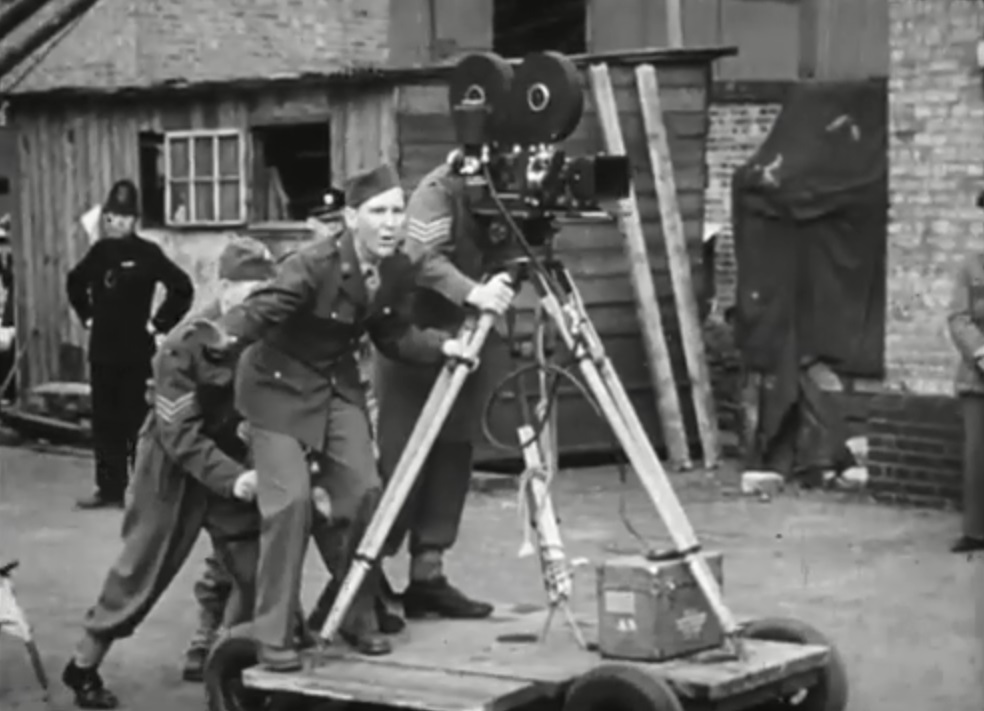
A truly inspired
masterpiece that is merely a job of work for the Ministry of Information
“with the assistance of the U.S. Office of War Information” on
behalf of the War Office to let G.I.s know where they
are, which is a pub, a home, a school, a railway station, a taxicab, a hotel, a
training camp, a ship, the enemy coast.
Co-directed with
Burgess Meredith, who talks to the camera in uniform throughout, score by
William Alwyn.
We Dive at Dawn
The Drake motif
carries right through, the Sea Tiger’s
steady captain has a butler of that name who arranges luncheons and soirées
with various “aunts”, the raid on occupied
Denmark and the Jolly Roger flown upon the submarine’s return generally
express it.
The crew are
married unhappily or betrothed reluctantly or vying for a girl, the voyage has
been uneventful, they’re given a new assignment.
The captain
musters all their forces for the sinking of the Brandenburg.
No result is perceptible,
the depth charges burst, the submarine leaks, lies
doggo, rolls over and plays dead.
Then the raid for
supplies, home and dry.
The Demi-Paradise
Olivier’s
great foreigners, this one cousin to the Italian balloonist in Saunders’ Conquest of the Air and the French
trapper in Powell & Pressburger’s 49th
Parallel. The sea route of Bacon’s Action in the North Atlantic or nearly,
then he comes over, in retrospect. “It all starrrted in 1939.” Not
Keats’ tourist, Eliot’s Stranger. English
boarding house. “All modern conveniences.” Hyde Park, Speakers’ Corner, where Shaw
delivered his reviews. A revolving stand of postcards,
for visitors. Will Hay, Paul Muni,
Olivier...
He’s got a
screw, for breaking the ice. Big business in Britain,
her father and grandfather. “Thou wast not borrrn forrr death, immorrrtal birrrd.” It needs work, that
screw. “I still say it’s very
revolutionary.”
Ian Holm has such
another Russian in Poliakoff’s Soft Targets (dir. Charles Sturridge). Behind the scenes at the pageant of English history (he
yawns).
A romance in two
parts. 1940, Europe gone, England besieged. The Battle of Britain. A
broadcast on the BBC, cello and nightingale, searchlights. Shipbuilding. The casting of the great screw. Germany
invades Russia. Churchill addresses the nation.
The pageant in
aid of his native city (he applauds, laughs at himself). “The
International” must be played, the pageant mistress discusses it with the
bandmaster in uniform and a couple of lady Britons of old and John Bull. Britannia with drawn sword sets the maiden free. The band, like Stravinsky and Diaghilev, settle on
“Song of the Volga Boatmen”.
The screw is
subject to metal fatigue in tests. He begins to
appreciate a music hall jest. It might be George M.
Cohan, Little Ivan Ivanovich,
“remember me to Nevsky Prospect.” The
inspiration in a cup of tea. “Well, that’s
that,” a bit of extra work at the shipyard is all.
No Highway
(dir. Henry Koster) remembers this. Laughter and
freedom are not equated, but “there is no laughter where there is no
freedom.”
Bosley Crowther
of the New York Times had no use for
it, English and all, “limp and dampish”. Variety was overwhelmed but praised
Felix Aylmer, “would excite risibility in a mummy.”
Time Out Film Guide,
“very cosy it all is, too.”
Halliwell’s Film Guide,
“pleasant, aimless” (Richard Wilmington thought he was being
condescended to, qua cinemagoing Englishman).
Fanny by Gaslight
The death of a
prosperous panderer to gentlemen, at the hands of a drunken bullying lord. The suicide of a cabinet minister who has ruined his life
through filial piety. The wounding of his assistant in
a duel with the cur. It ends in France, where another
duel was taking place.
Critics seem
generally to have objected to this on various grounds. “Simple,
obvious, hackneyed” (Punch). C.A. Lejeune for the New York Times simply reported from
London that “the customers love it because so many dreadful things
happen”. Variety found fault with the
editing and the tempo, and would have had “all the bawdy-house
sequences” excised. These viewpoints recur in
subsequent reviews.
The Way to the Stars
Basil Wright
noted the overture at the abandoned air station,
Resnais emulated it in Nuit et brouillard.
The marriage
token, a lighter, changes hands but the new man has jitters.
The excellent
poems are “Missing” and “Johnny in the Clouds”, expressing the idea.
The Winslow Boy
A five-shilling
dismissal from Royal Naval College goes at last to trial on Magna Carta.
Before he got to
the main English system he employed in The Browning Version, Asquith
still had the complicated variant of Hollywood lighting he uses here. The very intricate screenplay carries the drama in set-ups
put together by him and his actors that render a series of precise accounts.
A great price is
paid by Winslow père and the family, even the barrister (Robert Donat in
one of Asquith’s extraordinary leading roles), but the weight is lifted
at the last.
Neither Time
nor the New York Times had any patience with the film.
There was a bumper crop that year, or BAFTA would certainly have awarded
Best British Film and Best Film from any Source.
The Woman in Question
A
perfectly-turned item, gem or brummagem as regarded by friends or lovers in the
light of an investigation into her death by strangulation with a silk scarf at
a seaside hotel.
A comedy
nonpareil, a Rashomon with a parrot in its cage saying “Merry
Christmas”, rather placidly admired by Bosley Crowther in his
professional capacity as the film expert of the New York Times, but
really far above rubies in price.
The Browning Version
His translation
of the Agamemnon, “flawed” saith our hero “the Himmler
of the lower fifth,” whose own youthful and unfinished version in rhymed
couplets is preferred by an admiring pupil.
An amazing screenplay,
that might veer out of its way at any time and represent Nabokov’s Pnin
or Albee’s George, but doesn’t.
After wasting his
whole life and everybody else’s, Rattigan’s schoolmaster is made to
say “I’m sorry”.
Asquith is so
keen on the subject that his direction is said to be invisible, but a quick
glance shows his distinctive lighting in full sway.
The Importance of being Earnest
The two
characters are Algernon Moncrieff and his older brother Ernest John Worthing,
known as Jack.
Algernon’s
sport, Bunburying, consists in having a sick friend to call upon whenever
social responsibilities are too pressing. Jack, that
is Ernest, is always able to depart from the exclusively
“high-toned” demeanor expected of him as the guardian of a pretty
ward by going into town after one of his wicked younger brother’s
escapades.
There is no
friend, no brother, Jack and Algy do not know until the last scene that they
are related.
That is the simple,
evident structure. There is a great deal of
superstructure required to sort the mess out, and while this is of signal
interest, having two or more themes in counterpoint (the attractiveness of the
wicked, the very title of the play, etc.), it is generally distributed along
the lines of respectability or seriousness or earnestness in love, and even for
Lady Bracknell a young girl’s fortune is an earnest of her
marriageability.
The play has had
many critics who, like GBS, do not think it is important because they do not
see it is earnest. That, and not Asquith’s
direction, is the main reason why some reviewers have balked at the film in the
very terms used by Shaw on the opening night. “It
amused me, of course; but unless comedy touches me as well as amuses me, it
leaves me with a sense of having wasted my evening.” And
yet it is a very touching play, the two brothers, the handbag, Miss
Prism’s three-volume novel, the two girls of town and country, Canon
Chasuble, and (in Asquith’s film) Lady Bracknell riding the rails.
The Net
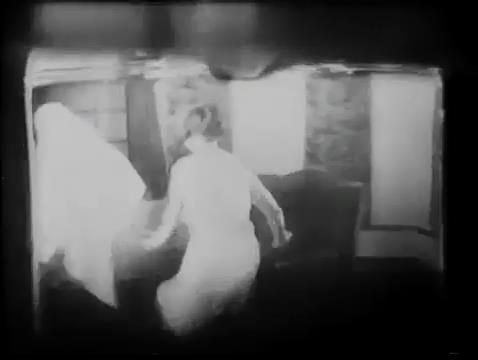
General security,
check check doublecheck,
safety of the central figure, hamstringing his best work (Arrowsmith, dir. John Ford).
Triple-fast
supersonic aircraft, the M7 prototype, future in
space.
The peculiar
constellation of its early piloted tests.
From the sea like
Mitchell’s seaplane (The First of
the Few, dir. Leslie Howard) to the stratosphere at a very pure diagonal. Danger of G forces, pressurized suits, a traitor in high
places.
A very fine
thing, achieved by Asquith precisely after the initial crisis is resolved as
suborbital flight (X-15, dir. Richard
Donner). A certain debt to Breaking the Sound Barrier (dir. David Lean) is gladly paid.
The absorption of
the work, a groundling’s love, the young lovers of Things to Come (dir. William Cameron Menzies), administrative
difficulties, a self-serving ally.
Bosley Crowther
of the New York Times, “wholly
incredible”. Halliwell’s
Film Guide, “quite adequately presented.”
R.J. Minney, Puffin
Asquith, “many believe” the director was miffed.
Desmond Dickinson
cinematography, Benjamin Frankel score, William Fairchild screenplay, from the
poet of The Way to the Stars.
The Final Test
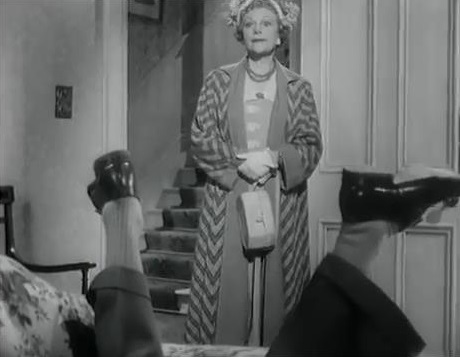
England v
Australia, an American at the cricket. “He’s
come up in the batting order.”
“And down
in the age group.”
Rattigan &
Asquith record the moment of inspiration in a poète de dix-sept ans,
“I’ve got it, I’ve got it—or have I?” Pinter’s Hutton. “By
kind permission of the Third Programme...”
“Did you
know they were televising Turtle
tonight?”
“No, were
they?”
“You’re
sacked!” The author of Follow the Turtle to My Father’s Tomb on “Chekhov and
cricket...”
The American,
“I beheld today an astonishing spectacle, it was no less than the
personal Dunkirk of an aging cricketer, but a crowd of many thousands with the
wildest enthusiasm hailed it as his greatest triumph, no less,” a Senator. The legend and the fact.
A.W. of the New York Times, “definitely adds
up to fun.” Halliwell’s
Film Guide, “flat”.
Rattigan’s
screenplay of Goodbye, Mr. Chips
(dir. Herbert Ross) is certainly a consequence of these researches.
The Young Lovers
A firm basis on
the Odile/Odette theme for The Tamarind
Seed (dir. Blake Edwards), The Human
Factor (dir. Otto Preminger), and The
Russia House (dir. Fred Schepisi), not to mention Romanoff and Juliet (dir. Peter Ustinov).
Asquith has
Hitchcock’s The 39 Steps for
his pivotal turn in the last act.
Bosley Crowther
of the New York Times
(“beautifully directed... nicely acted”) found “very poor
common sense” (as Chance Meeting). Variety,
“under Asquith’s polished direction, the two leading players bring
a genuine freshness to their roles and give point to the arty touches used by
the megger to bring home the sensitive side of the
story.” TV
Guide, “good Cold War romance”. Halliwell’s Film Guide,
“quite nicely put together”.
Carrington V.C.
The greatest
tribute to Capra, a translation of Broadway
Bill (or Riding High) into the
Royal Artillery, thus acknowledging the transformation of Job into It’s a Wonderful Life, the Gospels
into Meet John Doe, etc., an artistic
tour de force (the U.S. title is Court Martial).
Bosley Crowther
of the New York Times, “a
judicial issue of trifling consequence and of no significance whatsoever to the
turn of events in the world.” Variety, “a subject of dramatic
intensity.” Time
Out, “lacking only the final ounce of sheer cinematic flair.” Leonard
Maltin, “a solid drama.”
Hal Erickson (All Movie Guide),
“witty... classy”. Halliwell’s Film Guide, “good... convincing...
serviceable”.
Orders to Kill
Liquidation of a
wayward asset in Paris under the Occupation. It’s
an American job, the French are losing operatives, the British help train a
Yank for it, a fighter-bomber pilot grounded after fifty missions. One hundred masterpieces are contained within this
framework, the finely articulated structure proceeds notably by steps, now one
thing, now the next, a prismatic, kaleidoscopic thing, ultimately.
Bosley Crowther
of the New York Times simply
couldn’t follow it, “this promising melodrama loses steam and
credibility”. Time Out, “a way above average Asquith film.” Leonard Maltin,
“low-key psychological study”. Halliwell’s Film Guide,
“strong, hard-to-take but well made”.
The Doctor’s Dilemma
The elephant and
the blind doctors, Jesus and the doctors, anything but a satire of the medical
profession, which is what Variety and Bosley Crowther of the New York
Times took it for, the latter most enjoyably, what was that deathbed scene
for, he wanted to know.
The vehement
satire of critics and academics and people who give awards and grants to save a
Blenkinsop because a Dubedat only makes them think of James Joyce’s
gentle lady, “she said her name was Dubedat, and then she did,
bedad!”
The nasty
business of picking up the widow afterward is handily taken care of, she
marries a collector of great pictures, in honor of her husband’s memory
and wishes, cf.
Jacques Becker’s Les Amants de Montparnasse (Montparnasse 19).
An out-of-date
play, Variety thought.
Libel
Television is a
central motif of this composition, and Asquith modulates toward its neutral application
of light to prepare his great effects at the close. He
also abates composition after giving a handful of sharp angular inset views
early on (and the silhouette of a stopped train filling the screen in a
flashback, with escaped POWs hiding beneath it, and a German soldier peeking
between the cars).
Bogarde
effectually shows a transition between his dual roles (one of which is an actor
standing before his mirror), making possible his dubious identity at the trial
when a third avatar is introduced.
Beneath the legal
metaphor is a military one, the victor only being decided when his
consciousness returns, availing him a memory of the attack and his proper defense.
The game is
played with tricks, ruses, feints and guises, such as the baronet’s
American wife, the Canadian smelling out a fingerless villain (The 39 Steps),
the terrible revelation of the hospital patient known
only by his bed number, Fifteen, and the superb jockeying of Bogarde among his
characterizations.
This is a great
working–out of cinematic problems to achieve a great abstraction, the
victor’s guilt resolved, before the ultimate refinement of
Asquith’s later films, and in fact something like the yellow Rolls-Royce
is visible in the car dealership scenes.
The Millionairess
A very brilliant
analysis of the essential problem. Capitalism has its
gifts, socialism its considerations, there is a modus vivendi and still
more, each in its way is most humorously unsatisfactory as a mere instrument of
human will, life does not follow such absurd programmes.
It is easy to
build a hospital for the poor and a factory to replace a sweatshop, but
humanity is strangely not served by such things always, in every way. And where is the man of science without money to command?
Wolf Mankowitz
arranged this out of Aragno’s arrangement of Shaw for a clear picture,
completely irresistible. Film critics, if one may be
pardoned for putting Bosley Crowther on the spot in his New York Times
review, have scarcely seen it at all.
Variety did not give itself the excuse of being distracted
by Sophia Loren’s charms but took a thoroughly professional view of the
film and came out considerably ahead.
Peter Sellers has
the “annual dinner at Romano’s” number to let you know
“who you are dealing with.”
Guns of Darkness
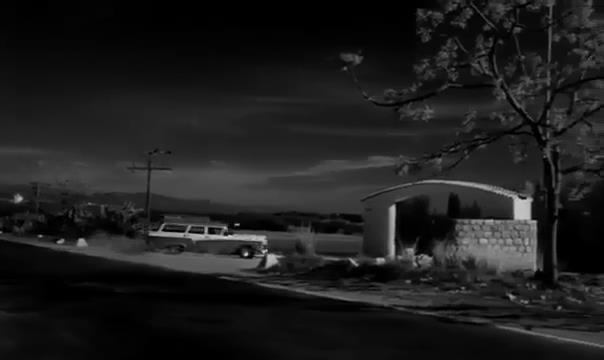
A coup d’état at the presidential
palace of Tribulacion, banana republic.
A “new
boy” with Napier International Plantations, chafing at the collar. “Be different,” says his French wife, the
winegrower’s daughter, “please, try!” It
gets to murder in the street next day, New Year’s. “There’ll
be a trial, of course, in the sports arena.” The
liberal regime, lately ousted by the army, falls into his lap (Richard
Brooks’ Crisis, John
Huston’s Under the Volcano).
All over by
Christmas, so to speak. “Look, I’m
English, um, you saw the flag.”
It’s the
interstices that tell the tale of company wives and the boss.
“You have such wonderful manners, Hugo.”
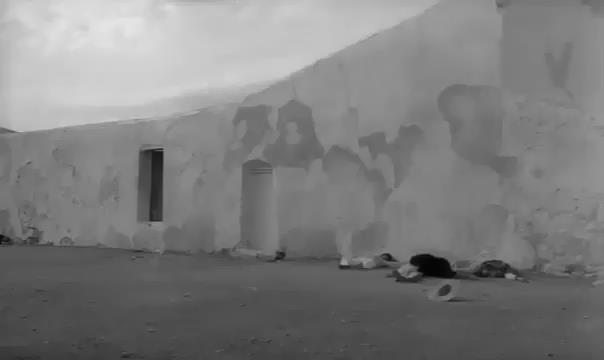
A pure source of
Peckinpah’s Straw Dogs. A complicated impressionistic set of fragmentary images
quite in Asquith’s line that, having undertaken the thing for whatever
reason or none, must come to terms with political quicksand as that and nothing
more, for example. Hard brutal facts are another
feature of the landscape, politically speaking, such as a whitewashed wall for
instructing villagers who “may not have heard the good news of our
revolution.”
“Another
job bitched up, is that what you were gonna say?” The war with its strange bedfellows, an end to
bosses of a certain kind (cp. Things to
Come, dir. William Cameron Menzies).
By John Mortimer
from the author of Furie’s The
Naked Runner, cinematography Robert Krasker,
score Benjamin Frankel.
New York Times, “familiar terrain”. Variety, “director Anthony Asquith
is slightly off form with this one.” Time Out, “there is, in fact,
rather more to it.” TV Guide, “too many implausibilities.” Eleanor Mannikka (All Movie Guide), “may wear too many hats
to be identified as either an
adventure, a treatise on non-violence, a psychological study, or whatever.” Halliwell’s
Film Guide, “a few tiny
comments about violence.”
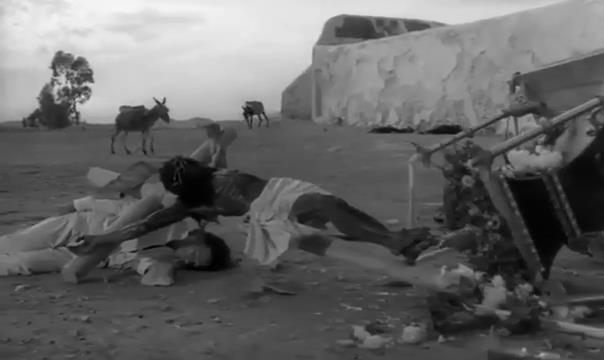
The V.I.P.s
Crœsus times
three and the Duchess of Brighton (Margaret Rutherford) plus a gigolo (Louis
Jourdan) at London Airport.
Max Buda (Orson Welles)
the Yugoslavian film director has an Italian starlet (Elsa Martinelli) in tow,
his next film is Lessing’s Mary
Stuart but she shan’t even play Elizabeth. He kisses his elderly
accountant right on the lips for devising a tax dodge that will save him a
million pounds sterling by leaving England before midnight.
Les Mangrum (Rod
Taylor) the Australian tractor manufacturer has to be in New York this
afternoon or lose his company to Amalgamated Motors.
Madame Andros
(Elizabeth Taylor) is leaving her enormously wealthy husband Paul (Richard
Burton) for the gigolo.
The Duchess has
accepted a job at a Miami hotel as Assistant Social Directress, to save her
home.
Fog closes the
airport.
Andros threatens,
bribes, and writes a suicide letter.
Mangrum’s
secretary Miss Mead (Maggie Smith) encounters Andros in the writing room of the
airport hotel lobby, he gives her a blank cheque.
The accountant
hits upon another dodge, marriage to the starlet for one fiscal year, and gets
another kiss.
The fee for six
weeks’ shooting at the Duchess’s home means she doesn’t have
to fly to Florida.
Madame Andros
also stays home.
Beautifully
written, acted, and filmed.
The Yellow Rolls-Royce
The film proceeds
along a revolving formula, let us say, and doubtless with reference to Renoir’s
Le Carrosse d’or. The Englishman sells it after his French wife
dallies with a Foreign Office underling in it. The American gangster sells it
after his moll dallies with an Italian photographer in it. The rich American
widow ships it back to America after a dalliance with a Yugoslav partisan in
it, just before America enters the war.
That this
structure, in the lapse of time conveyed, could have any significance beyond a
plush ride in a finely-appointed automobile does not seem to have occurred to reviewers
in the general run of things.
England between
the wars, Italy under Fascism, World War II.
Thus the
modalities, which absolutely escaped A.H. Weiler of the New York Times, to be specific.